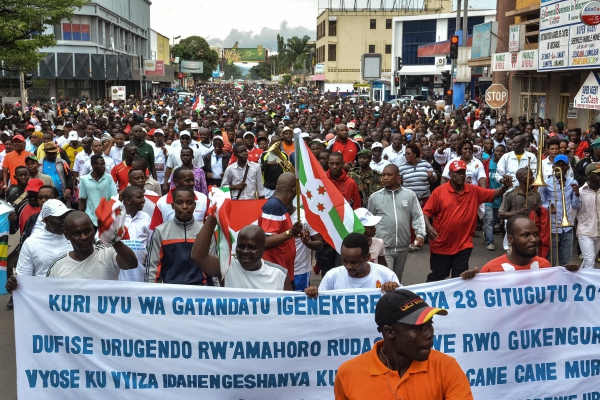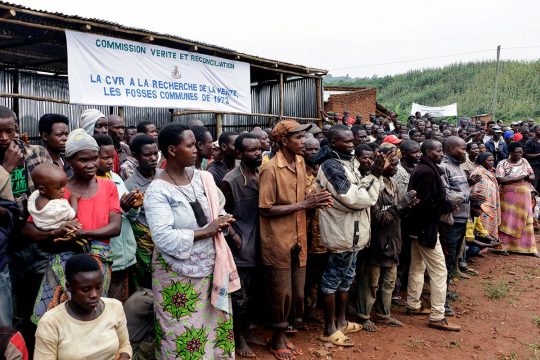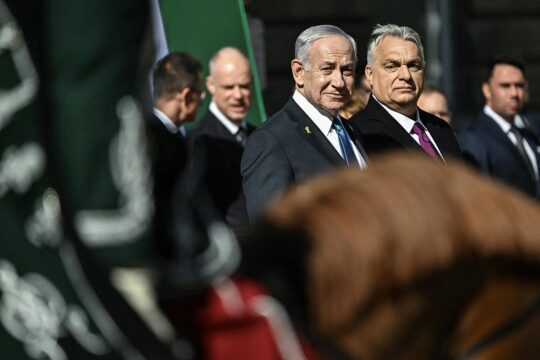The International Criminal Court (ICC) has approved a full investigation into serious crimes committed in Burundi since April 2015, it announced on Thursday. This investigation will look into suspected crimes against humanity committed by the Burundian regime. The decision was taken on October 25, just two days before Burundi’s official withdrawal from the ICC. By quitting membership of the Court, Bujumbura thought it would secure impunity. The Court has said otherwise.
Those in power in Bujumbura have now got a long-awaited answer from the ICC, which says the perpetrators of crimes against humanity committed since April 2015 will be punished. Will fear change sides? “From now on the authors, co-authors and accomplices of the crimes must understand that the games are over,” said Lambert Nigarura, president of the NGO coalition for the ICC in Burundi. “They will no longer be able to amuse themselves while committing crimes on the civil population without fear of justice.”
Repression by the regime of Pierre Nkurunziza has left dozens, if not hundreds dead, and more than 400,000 displaced, according to the Court. Its investigation will focus on murders, more than 600 cases of torture, cases of rape, forced disappearance and arbitrary detention. These are crimes committed since the start of the latest crisis in Burundi in April 2015, sparked by Nkurunziza’s decision to run for a third term as President. According to the ICC judges’ decision made public on November 9 – a 100-page document setting the framework for the investigation and based on evidence from the Prosecutor –, the crimes were committed in the context of a “State policy aimed at suppressing dissident voices and opposition to Nkurunziza’s third mandate”.
The document does not at this stage name suspected perpetrators, but points the finger at security services, notably the anti-riot squad set up during the crisis, the police, army and intelligence services, as well as the “Imbonerakure” militia of the ruling CNDD-FDD party.
The decision handed down on October 25, 2017, had been kept under seal to “protect the integrity of the investigation and the life or well-being of victims and potential witnesses in the Situation”, according to ICC Prosecutor Fatou Bensouda. “Keeping the request under seal afforded my Office critical time to complete deployment and collection plans, as well as comprehensive operational and protection strategies, in our efforts to reduce and mitigate the identified risks,” she added in a statement.
Counterproductive withdrawal
The decision came two days after Burundi’s withdrawal from the ICC became effective. Thinking that it could escape the eyes of the Court in The Hague, Bujumbura gave notice to the UN Secretary General on October 26, 2016 of its withdrawal from the ICC’s founding treaty, the Statute of Rome. That decision was decidedly counter-productive, since it spurred the Prosecutor to step up her preliminary examination opened in April 2016. “The decision to open an investigation signals that ICC withdrawal does not simply shield a government from scrutiny about its role in grave human rights violations,” commented Param-Preet Singh of Human Rights Watch.
The Prosecutor could also investigate crimes committed after Burundi’s official withdrawal from the ICC on October 27, 2017, notably forced disappearances which are considered a crime with no time limit on jurisdiction under international law. What happened to many Burundian human rights activists and journalists is still unknown. The Court cites the cases of Marie-Claudette Kwizera of Burundian human rights league Iteka, who was kidnapped in Bujumbura on December 10, 2015, and journalist Jean Bigirimana, who disappeared on July 22, 2016.
The investigation is also expected to look into suspected war crimes committed by opponents of the regime. Fatou Bensouda said she did not have conclusive evidence that there was an armed conflict. The judges nevertheless asked her to investigate the May 2015 attempted coup by General Godefroid Niyombare and attacks on military bases in Bujumbura in December, in order to confirm that statement or not.
Difficulties ahead
Bujumbura has an obligation to cooperate, but it is unlikely that it will respect international law. “The ICC, riddled with corruption, has just shot itself in the foot again,” wrote Burundi’s presidential spokesman Willy Nyamitwe on Twitter after the decision was announced. “The trickery is obvious. Burundi will no doubt emerge the winner of this battle, the last card that the West has left to play.”
The investigation is likely to be difficult. According to the judges, several sources say Burundi’s government has harassed, intimidated and physically harmed victims and potential witnesses. The judges also stress Burundi’s gradual isolation over the last two years from the international community, noting that it denied permission for a UN commission of inquiry to visit Burundi. “The Government of Burundi has not merely been uncooperative but has actively sought to target, both in Burundi and abroad, persons who it perceives could implicate it in the crimes alleged, as established by additional sources,” said ICC Prosecutor Bensouda in her submission to the judges on September 5.
It should be noted that Bensouda could also investigate attacks on opponents in exile. The judges considered that human rights activists, people close to them and former members of the Burundian army have been targeted in seven countries near to Burundi.






